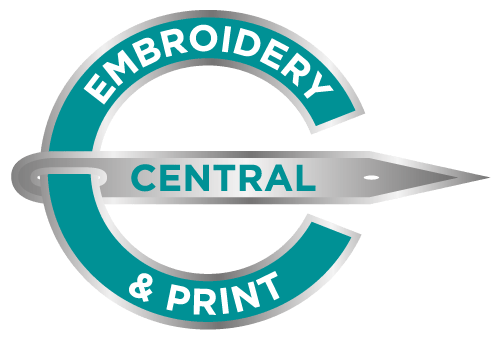Can eco-friendly workwear save the planet and your brand? With the increasing emphasis on sustainable business practices, modern enterprises are turning their focus towards eco-conscious choices. Conventional workwear carries a hefty environmental burden, often laden with synthetic materials that harm ecosystems. Embracing sustainable workwear not only aligns with global environmental goals but also elevates a brand’s image. By opting for biodegradable or recycled fabrics, businesses can mitigate their environmental impact, appeal to eco-minded consumers, and position themselves as industry leaders. Discover how sustainable workwear is reshaping business landscapes and fostering a greener future.
Understanding the Importance of Sustainable Workwear
Traditional workwear utilises synthetic materials such as polyester and nylon, which contribute significantly to environmental degradation. These materials are derived from non-renewable resources, and their production is energy-intensive, releasing substantial amounts of carbon emissions. Additionally, when discarded, synthetic fibres can take hundreds of years to decompose, contributing to landfill waste and microplastic pollution in water bodies. The environmental impact of such conventional choices underscores the need for an eco-conscious mindset among businesses.
Transitioning to sustainable workwear offers numerous environmental advantages. By opting for eco-friendly materials like organic cotton or recycled polyester, businesses can drastically reduce their carbon footprint. Sustainable fabrics are either biodegradable or made from recycled sources, thus conserving natural resources and reducing waste. This shift not only aligns with global efforts to combat climate change but also enhances a company’s reputation as a responsible entity committed to environmental sustainability.
- Reduces carbon emissions and environmental impact
- Enhances company reputation and brand image
- Meets consumer demand for eco-conscious products
- Offers long-term cost savings through durable materials
- Attracts and retains eco-conscious employees
Approaching the transition to sustainable workwear requires strategic planning. Businesses should start by assessing their current workwear needs and identifying areas for improvement. Collaborating with suppliers who prioritise sustainable practices can facilitate the adoption of greener options without compromising on quality or style. Incorporating eco-friendly workwear into a business model not only reflects an organisation’s commitment to environmental stewardship but also positions it favourably in a market increasingly driven by sustainability.
The Benefits of Eco-Friendly Fabrics in Workwear
Eco-friendly fabrics in workwear include options such as organic cotton, recycled polyester, and bamboo fibres. Organic cotton is grown without synthetic pesticides or fertilisers, making it a sustainable choice that minimises chemical exposure and soil degradation. Recycled polyester, often derived from repurposed plastic bottles, reduces reliance on petroleum-based materials and decreases waste in landfills. Bamboo fibres offer a naturally renewable resource with antibacterial properties and a soft texture, enhancing wearer comfort. These materials not only contribute to a reduced environmental footprint but also provide durable and stylish alternatives for modern workwear.
| Fabric Type | Benefits |
|---|---|
| Organic Cotton | Reduced chemical use and soil preservation |
| Recycled Polyester | Less reliance on petroleum, waste reduction |
| Bamboo Fibres | Renewable, antibacterial, soft texture |
| Hemp | Durable, requires less water and pesticides |
The use of sustainable materials in workwear significantly impacts waste reduction and resource conservation. By choosing biodegradable or recycled options, businesses can decrease their contribution to landfill waste and minimise the extraction of raw materials. These eco-friendly choices align with global sustainability goals, promoting a circular economy where materials are reused and recycled. As companies increasingly prioritise environmental responsibility, adopting such materials not only supports ecological balance but also meets the rising consumer demand for sustainable products.
The Business Case for Sustainable Workwear
Adopting sustainable workwear significantly impacts brand reputation and customer loyalty for modern businesses. Customers today are increasingly drawn to brands that align with their personal values, particularly those concerning environmental sustainability. By investing in eco-friendly uniforms, companies not only demonstrate their commitment to reducing environmental impact but also differentiate themselves in a competitive market. This alignment with consumer values fosters stronger customer relationships and enhances brand image, potentially increasing customer loyalty and attracting new patrons who prioritise sustainability in their purchasing decisions.
The cost-benefit analysis of eco-friendly materials reveals compelling reasons for businesses to make the switch. While the initial expense of sustainable workwear might be higher compared to traditional options, the long-term benefits are substantial. Eco-friendly fabrics, known for their durability and quality, result in uniforms that last longer and require less frequent replacement. This longevity translates to cost savings over time, as businesses spend less on uniform turnover. Additionally, investing in sustainable materials can lead to reduced waste disposal costs, further enhancing the financial viability of this choice.
Employee Satisfaction and Retention
Offering sustainable workwear can positively influence employee morale and retention. Employees are more likely to feel proud and motivated to work for a company that aligns with their values, particularly when it comes to environmental responsibility. Providing eco-friendly uniforms demonstrates a commitment to ethical practices and can improve workplace satisfaction. This, in turn, can increase employee loyalty, reduce turnover rates, and attract talent who prioritise working for environmentally conscious employers.
In summary, the long-term benefits of investing in sustainable workwear for businesses are multifaceted. Beyond cost savings and enhanced brand reputation, businesses stand to gain from improved customer loyalty and employee satisfaction. As modern businesses strive to remain relevant and competitive, integrating sustainable workwear into their operations not only aligns with global sustainability goals but also positions them as leaders in corporate responsibility.
Navigating Sustainability Certifications and Standards
Sustainability certifications serve as a benchmark for businesses aiming to adopt ethical fashion practices in their workwear choices. These certifications ensure that the garments meet specific environmental and social criteria, thereby guiding businesses towards more responsible and sustainable suppliers. They address various aspects, such as the ecological impact of materials, fair labour practices, and waste management. For businesses, these certifications matter because they provide transparency and accountability, assuring customers and stakeholders that their corporate responsibility commitments are genuine. By aligning with recognised standards, companies can differentiate themselves in the marketplace and earn the trust of environmentally conscious consumers.
- Global Organic Textile Standard (GOTS)
- Fair Wear Foundation (FWF)
- OEKO-TEX Standard 100
- Cradle-to-Cradle Certified
Integrating sustainability certifications into business practices helps in achieving broader corporate responsibility objectives. These certifications not only ensure compliance with ethical and environmental standards but also enhance the brand’s credibility and reputation. They serve as a tangible demonstration of a company’s commitment to ethical sourcing and manufacturing processes, reinforcing the value placed on sustainability. By choosing certified sustainable workwear, businesses can confidently communicate their dedication to reducing environmental impact and promoting fair labour practices, thus solidifying their position as leaders in ethical fashion and sustainable business practices.
Case Studies: Businesses Leading the Way in Sustainable Workwear
Examining case studies is crucial in understanding the practical applications of sustainable workwear within a corporate sustainability strategy. These examples not only illustrate innovative approaches taken by businesses but also highlight the tangible benefits of adopting eco-friendly practices in their supply chains. Companies that integrate sustainable workwear solutions often experience enhanced brand reputation, cost efficiencies, and improved stakeholder relations. By analysing these real-world scenarios, other businesses can glean insights and best practices that can be adapted to their unique operational contexts.
Leading Brands
Hesburger stands out as a pioneering brand in the realm of sustainable workwear by incorporating recycled materials into its uniforms. This innovation in workwear design not only reduces environmental footprint but also aligns with global sustainability goals. By repurposing materials that would otherwise contribute to waste, Hesburger sets a benchmark for integrating sustainability into its supply chain. Such practices exemplify how brands can maintain their operational efficiency while committing to eco-friendly initiatives. The incorporation of recycled materials demonstrates a proactive approach to reducing waste and supporting a circular economy, thereby contributing to the brand’s positive image and customer loyalty.
Community initiatives are another aspect where businesses can significantly impact sustainability. For instance, supporting local communities through donations, such as providing over 100 warm jumpers, exemplifies how companies can extend their sustainable practices beyond internal operations. These initiatives not only foster goodwill but also promote social equity and environmental consciousness within the community. By engaging in such activities, businesses can strengthen their corporate responsibility and enhance their social license to operate. This approach not only benefits the local communities but also reinforces the company’s commitment to sustainability, encouraging other businesses to adopt similar practices.
The overall impact of businesses leading the way in sustainable workwear is multifaceted. By adopting sustainable supply chain practices and engaging in community initiatives, these companies set industry standards and influence broader market trends. Their commitment to sustainability has ripple effects, inspiring other businesses to follow suit and integrate eco-friendly practices into their operations. This collective movement towards sustainable workwear not only addresses environmental challenges but also fosters innovation and resilience within industries, ultimately contributing to a more sustainable and equitable future for all.
Final Words
Transitioning to sustainable workwear is essential for modern businesses aiming to reduce environmental impact and bolster brand reputation. Eco-friendly fabrics provide benefits such as reducing waste and conserving resources, offering crucial advantages over traditional materials.
Investing in sustainable workwear enhances brand reputation and customer loyalty, while certifications ensure alignment with ethical standards and corporate responsibility.
By examining case studies of businesses leading in sustainable workwear, companies can gain practical insights into implementing sustainability initiatives. Embracing sustainable workwear not only benefits the environment but also strengthens a business’s position in the market, promoting a positive and lasting impact.
Embrace eco-friendly workwear – Explore Central Embroidery’s sustainable uniform options today!
FAQ
Q: What is sustainable workwear?
Sustainable workwear refers to clothing designed with eco-friendly materials and practices, aiming to reduce environmental impact and enhance corporate responsibility. Utilising materials like organic cotton or recycled polyester helps lower resource consumption.
Q: How does sustainable workwear benefit the environment?
Sustainable workwear decreases environmental harm by using biodegradable or recycled fabrics, reducing waste, and conserving natural resources, thereby contributing to a healthier planet and fostering an eco-conscious culture.
Q: What are the key reasons eco-friendly workwear matters?
- Reduces resource intensity
- Minimises environmental damage
- Enhances brand reputation
- Aligns with consumer sustainability values
- Promotes corporate responsibility
Q: What are common eco-friendly workwear materials?
Eco-friendly workwear commonly utilises organic cotton, recycled polyester, bamboo, and Tencel, all contributing to reduced waste and resource conservation while maintaining comfort and functionality.
Q: Why should businesses invest in sustainable workwear?
Investing in sustainable workwear can enhance a brand’s reputation, increase customer loyalty, and realise long-term cost savings due to durability, which reduces the frequency of uniform replacement.
Q: What is the impact of sustainable fabrics on waste reduction?
Sustainable fabrics, such as those made from recycled polyester and organic materials, significantly reduce waste by repurposing existing resources, thereby lowering the demand for new raw materials and decreasing landfill use.
Q: How do sustainability certifications aid businesses?
Sustainability certifications assure that workwear meets ethical standards, guiding businesses in responsible purchasing decisions and helping to fulfil corporate responsibility goals in line with consumer expectations.
Q: Which certifications should businesses look for in sustainable workwear?
- Global Organic Textile Standard (GOTS)
- Fair Trade Certified
- Oeko-Tex Standard 100
- Bluesign Certification
Q: How does sustainable workwear enhance employee satisfaction?
Sustainable workwear can boost employee morale by aligning with their personal values, leading to improved retention rates as employees appreciate their company’s commitment to environmental responsibility.





